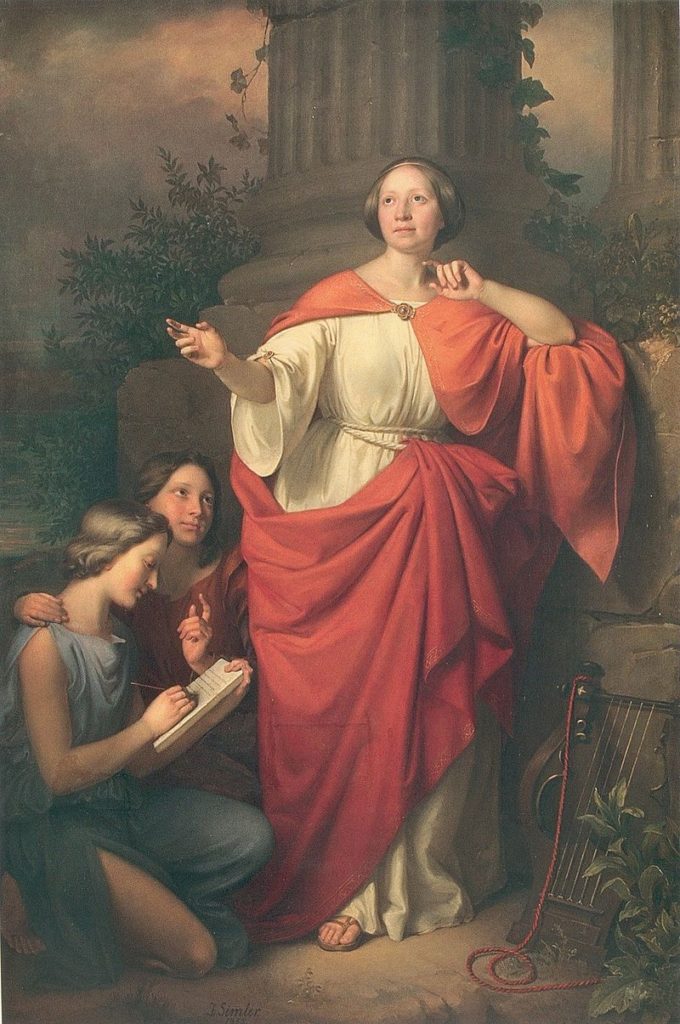Translated by Steven J. Willett

Jadwiga Łuszcenska portrayed as lecturing Diotima in the 1855 painting by Józef Simmler

A 1st-century bronze plaque that depicts Diotima, Eros and Socrates
Note: Diotima (stressed in English Diotíma from Greek Διοτίμα) was the pseudonym Plato gave to a prophetic woman who knew and taught the doctrine of Eros as reported by Socrates in the dialogue Symposium.
Go down now, lovely sun, they regarded you
As trivial, they knew you, o Holy, not,
Since effortless and quiet you are
Over the troublesome now arisen.
To me so friendly go up and down, o light!
And well my eye discerns you magnificent!
I learned from godly silence to reverence
Where Diotima my senses mended.
Oh you the heaven’s herald! how I you heard!
You, Diotima! Love! how I looked to you
In golden day this eye alone mine
Lustrous and thankful above. Then rushed
More livingly the brooks, and so deeply breathed
The blooms of somber earth in their loving me,
And laughing over clouds of silver
Bowed from above with his blessing Aether.

Thank you so much, Mr. Willett, for these beautiful and instructive posts.
Seconding Stepanie’s comment above: Thank you.
Thank you. I didn´t know this verse in German which is my mother tongue. It touched me in your English version.
Sent it to a bilingual friend. Loved it. My German’s only workaday but I did too. Particularly since it looks like a pig to translate – for me the translation captures perfectly the flow into the climactic last few lines.
… es atmeten
Der dunkeln Erde Blüten mich liebend an,
Und lächelnd über Silberwolken
Neigte sich segnend herab der Aether.
He had a rough time, that man, didn’t he? Seems only to have been appreciated long after his death. So died rich and didn’t know it. Died famous and didn’t know it. I can’t think of an equivalent among the English romantics. Perhaps Shelley, equally sensitive at his best to rhythm and flow? Not that the characters are that comparable, Hölderlin coming out well ahead there I’d guess.